The Migrating Pizza Makers from Naples Conquer Manhattan
Italians who do not reside in Naples know that they can get their fix of original Neapolitan pizza and delicious buffalo mozzarella at any of the Fratelli La Bufala locations in the country. Starting next Friday, New Yorkers will have the same privilege: the Neapolitan eatery opens in the Upper West Side of Manhattan, on Broadway and 76th Street.
Fratelli La Bufala comes to New York after six years of activity in Miami and 110 openings around the world. The brand has come a long way since its inception in 2003, when the “brothers” opened their first restaurant in Via Medina, Naples.
“We were very passionate but we had no idea that Fratelli La Bufala would become such a successful ‘format’ on a global scale,” says Paolo Aruta, CEO of EmmeSei Group, the company that owns the brand FLB among other concept-chains.
The sister companies are “MammaOliva,” all centered on the use of olive oil, “Mò Food Café,” offering a wide range of breakfast foods and coffee, and “Vulkania,” offering Neapolitan cuisine with an emphasis on the use of fire stones as a cooking tool. Each is very popular in its market, testifying to the scrupulous study that is key to succeeding in the restaurant industry.
When talking about the La Bufala brothers we have to use quotes, as the three partners who founded FLB are not blood related, but rather partners in business bonded by a brotherly love for Neapolitan traditional cuisine and by an extremely solid global vision for it.
“The hoax is in the name,” Aruta jokes, as in Italian “La Bufala” not only means “the buffalo,” but it also translates “the hoax”. “We are not really brothers, but we feel like we are. We started everything together, from scratch, trying to bring our traditional dishes around the world, and giving them a modern twist.” Considering such a high purpose and all of the brothers’ dedication, the lack of a blood relationship sound like a white lie.
The “La Bufala” brotherhood, the recipe of FLB’s success, is centered on buffalo-derived products: “They are our flagship, buffalo is present in our menu from the appetizer to the desserts, prepared with buffalo milk,” Aruta says.
These products vary from the scrumptious buffalo mozzarella, which according to Manzo “is what will make you want to come again,” to the tasty and nutritious buffalo meat: “It is leaner than chicken or turkey, recommended in all diets and a great source of protein. Our menus here include nutritional facts and pictures, so that the customer can understand what he is eating both visually and as far as intake is concerned,” Sabato Manzo explains.
Manzo is responsible for the development of the FLB “format” abroad, and over the past three months, he accomplished the opening of FLB locations in Piccadilly Circus in London, in Berlin and in Istanbul.
Pizza is also at the core of the FLB philosophy. “It’s the original Neapolitan pizza, whether you like it or not,” Aruta says.
The values of FLB allow no compromising with Neapolitan flavors, even when the local customers are not used to them and require education. “I’ll never forget what happened in our restaurant in Hampstead, London, where customers would ask for ketchup and mayo to season the pizzas and the pastas. We didn’t even have those in store. It was tough at first, then they understood,” Aruta tells i-Italy.
The authenticity of the Neapolitan taste also depends on the ingredients, imported daily from Italy or hand-picked from local vendors when it comes to fresh and seasonal produce: “Our menu changes four times a year, thanks to our strong logistics mechanism we are able to import all that we need to produce everything in-house. Even fried starters are never frozen, but freshly made by our chef,” says Aruta.
“We even make pastiera the way it’s made in Naples, and for that you need Italian corn, Italian honey…I can mention all of the key ingredients, we have them all delivered every day,” Manzo adds.
The pizzaioli, the pizza makers, are another special asset at FLB: “We train them internally and they are often sons and heirs from the historical pizzaioli families of Naples. They are often related with each other. If you don’t pick your pizzaiolis in those circles, you’re not going to eat real Neapolitan pizza,” Aruta reveals.
Pizzaiolis at FLB are also what makes each restaurant personable, what gives each of them a lively atmosphere: “Working in such international environments is rewarding for them, they bring all of their energy.”
FLB’s motto is “Pizzaioli Emigranti,” migrating pizza makers, originally referring to the international wanderings of the three founding partners before they joined forces to open their first pizzeria. It now applies perfectly to the globetrotting army of FLB’s pizzaiolis, who wear a t-shirt that says “Pizzaiolo Emigrato,” emigrated pizza maker, behind their back. “We are the ones who make them emigrate!,” Manzo jokes.
Layout-wise, the position of the pizzaiolis is the same in every location: “You can see them working from our windows, passing by. Our ingredients and our brick oven are right on display, not hidden in a basement. It’s as clear as it gets,” Manzo tells i-Italy.
The oven they use is the same worldwide too: “We have a craftsman from Naples that follows us around the world every time we open. He builds the oven, then tests it with the pizzaiolo before the opening,” Aruta says.
Given the pizzaiolis, the ingredients and the ovens, solving the pizza equation is simple: “Whether you are here or in Naples or in Dubai, the pizza you’ll eat is the same in every FLB restaurant,” Manzo explains.
Standardization made perfect, but not the McDonalds’ way: “We offer a standard, but the atmosphere is key,” he adds, and the brothers know well. “We have studied our competitors: there are so many Italian pizzerias in this city that understood how to market Italian dining the easy way. They are soulless, they all offer the same. Sometimes they even use gas ovens or electric ovens, and they have no problem exposing them.”
Determined to conquer New York, FLB plans on doing so by first inviting New Yorkers for a taste, knowing that that flavors will work their magic.
The tasting experience is the real ace in the hole, according to Manzo: “It’s the first time that we organize events to meet the neighbors and the press before our grand opening. We are investing in meeting New Yorkers, treating them with a sample of what we bring. We want to establish friendly neighborhood relationships.”
Both in New York and Miami, the chosen locations are residential areas rather than the touristy parts of the cities: “Tourists eat and leave, we want to last over time: we want you to tell your friends and lovers that you want to take them here because of what you had the last time you came. We want you to develop an addiction,” Manzo and Aruta tell i-Italy.
From our experience, we already know we will be returning customers, especially if the idea of a “Pastiera Party” casually mentioned by Manzo between one slice of Pizza Margherita and the other during our conversation, will actually become reality.






























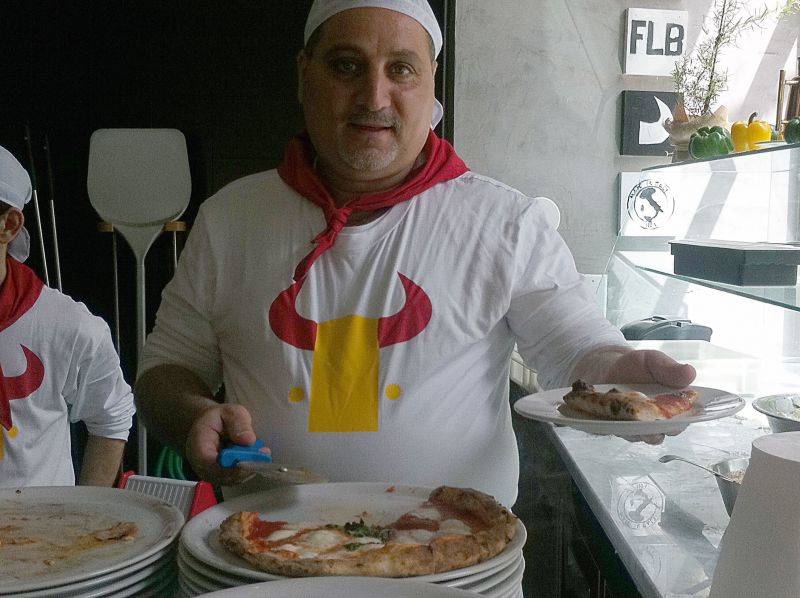
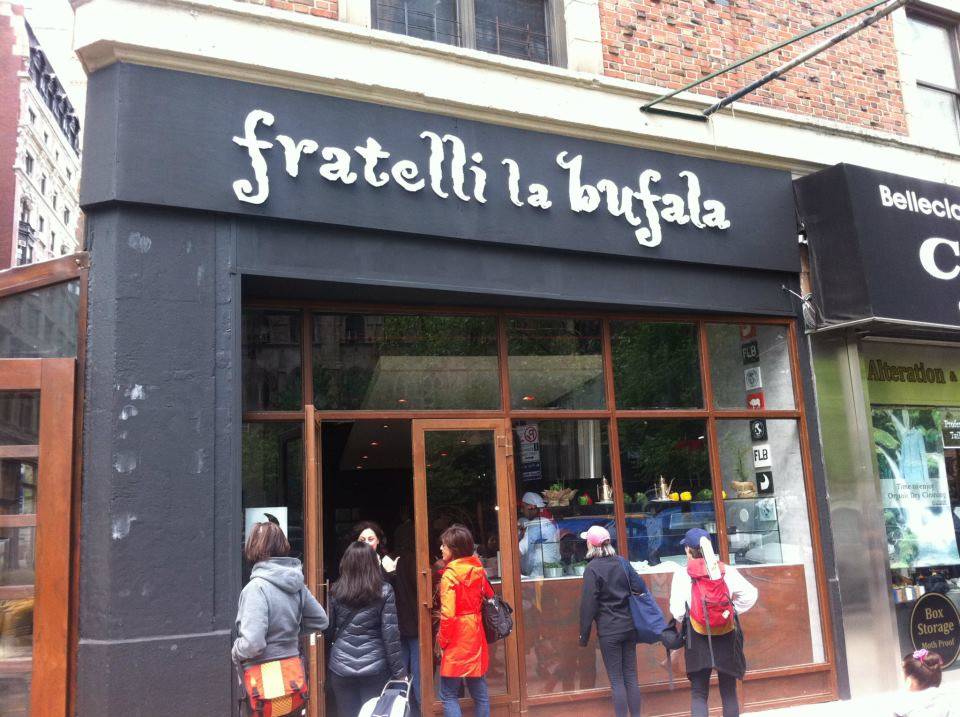

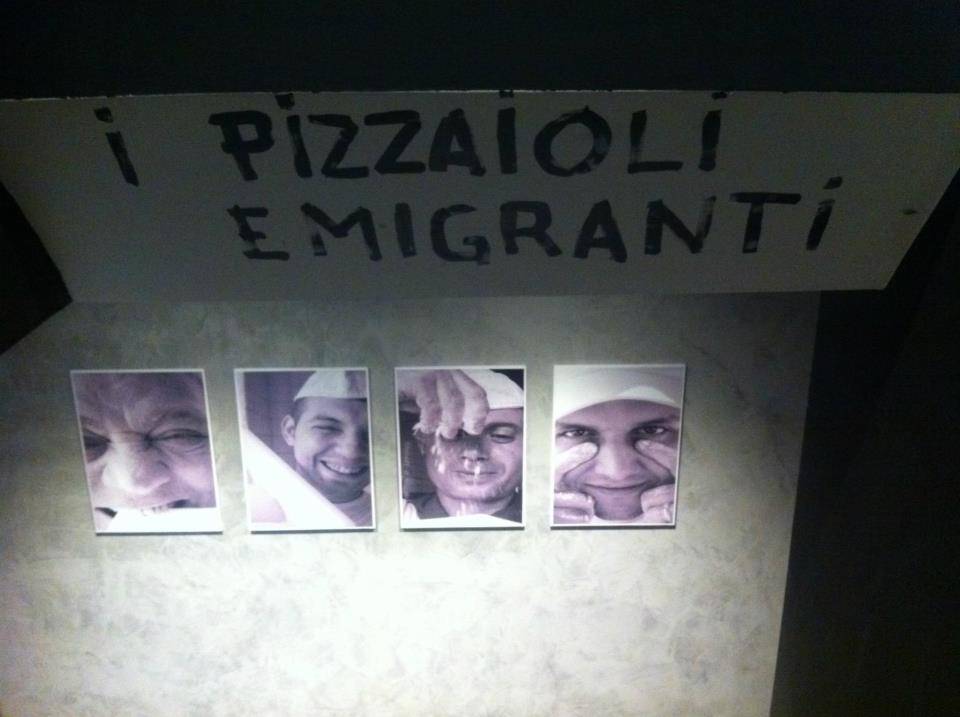
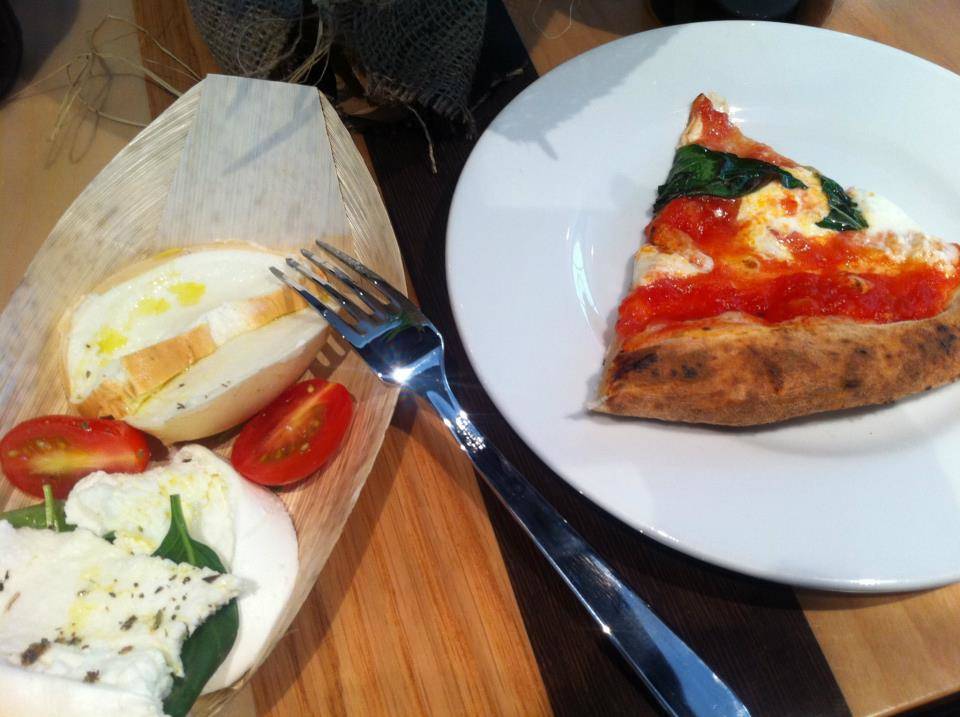
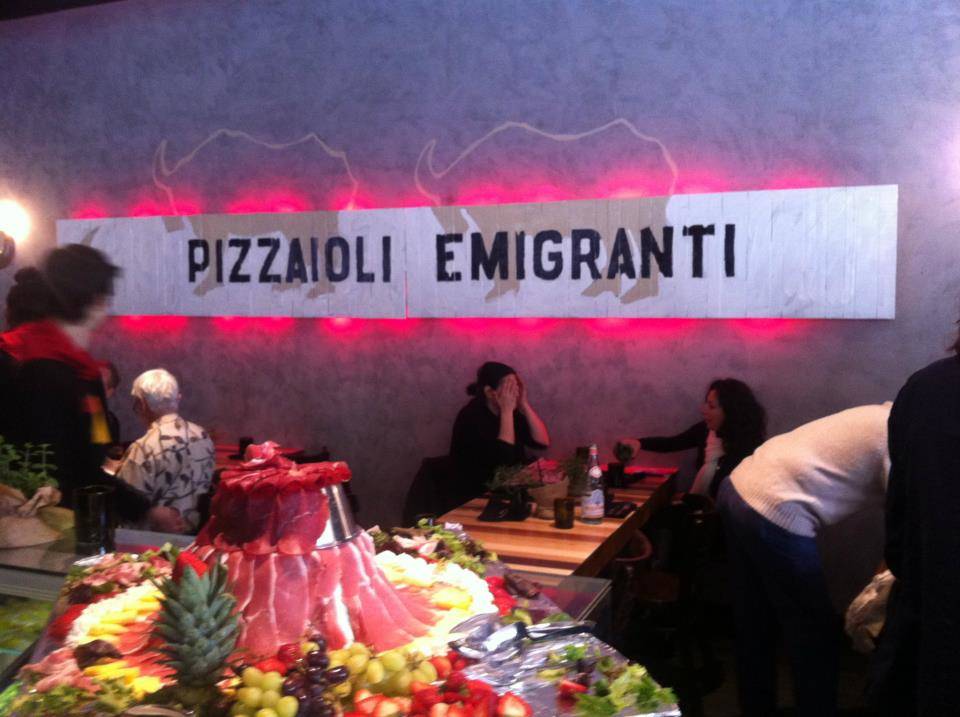
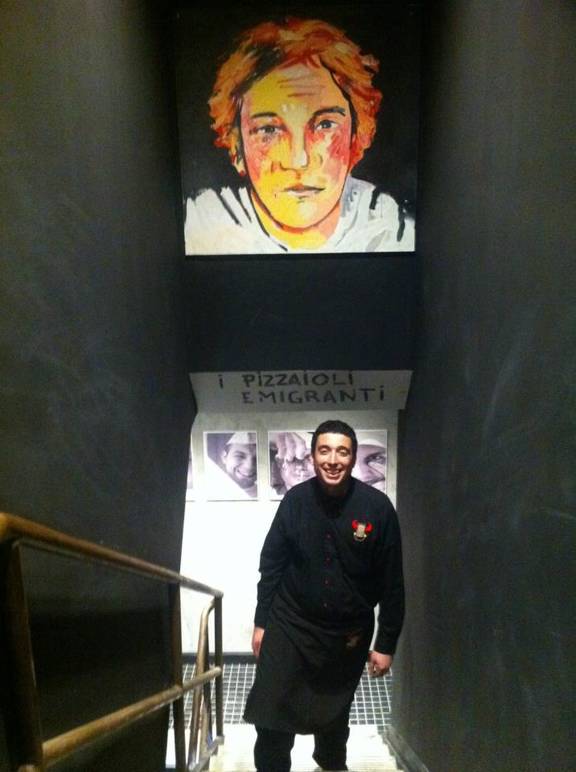
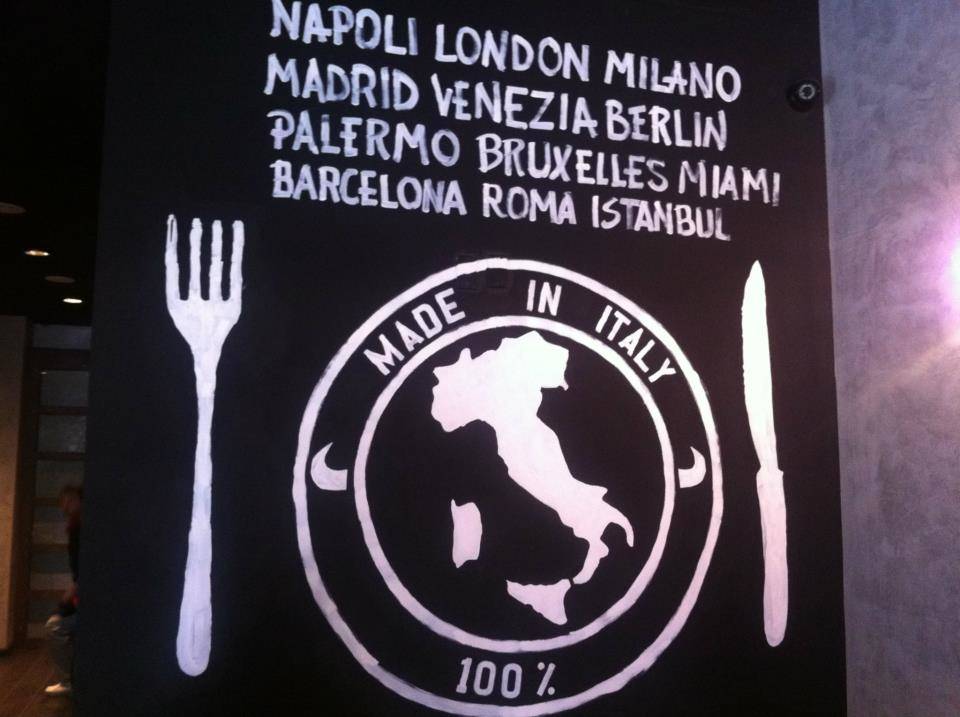





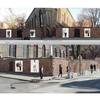
i-Italy
Facebook
Google+
This work may not be reproduced, in whole or in part, without prior written permission.
Questo lavoro non può essere riprodotto, in tutto o in parte, senza permesso scritto.